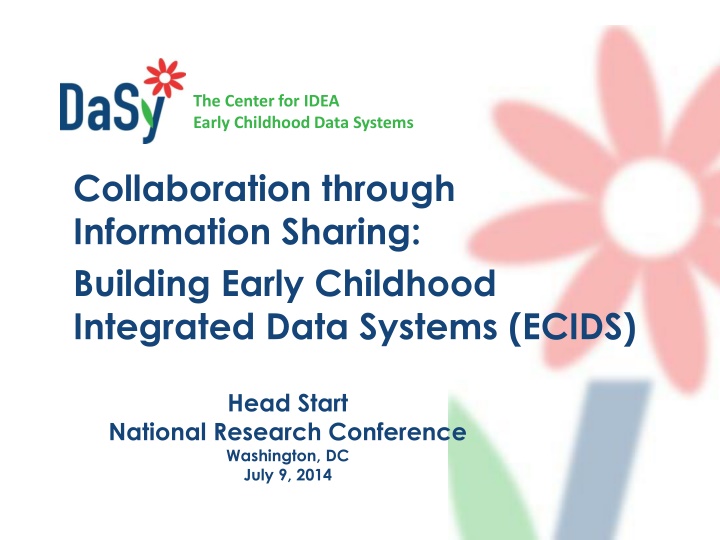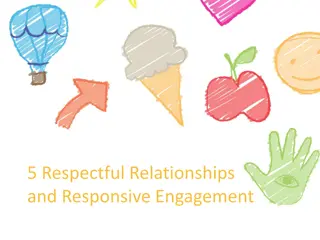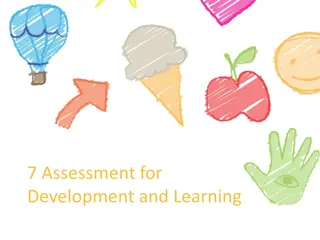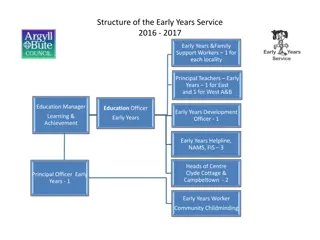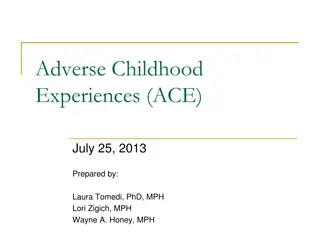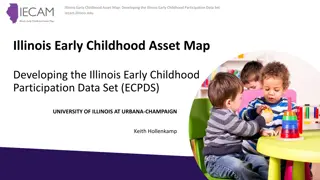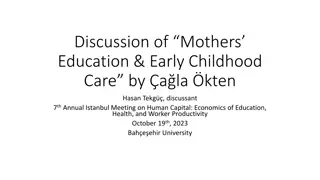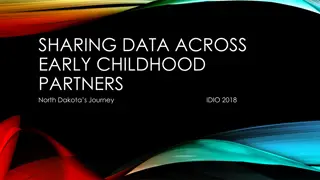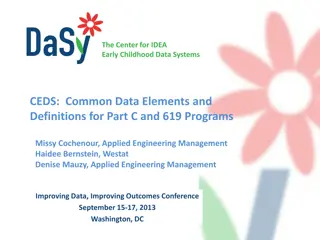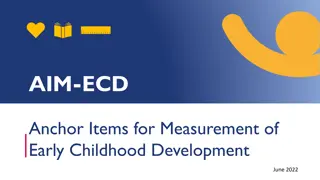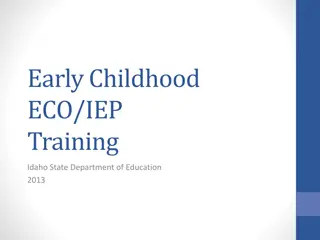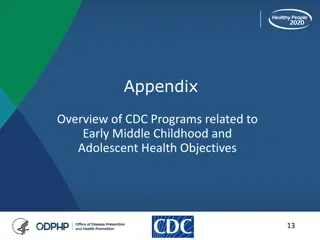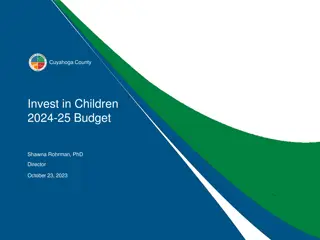National Conference on Early Childhood Data Systems
The National Conference on Early Childhood Data Systems focused on federal investments in developing state-level data systems for early childhood education. The event covered the importance of integrated data systems, challenges, and opportunities for researchers. It highlighted the roles of different sectors and showcased initiatives to improve data quality for better outcomes in early learning programs.
Download Presentation

Please find below an Image/Link to download the presentation.
The content on the website is provided AS IS for your information and personal use only. It may not be sold, licensed, or shared on other websites without obtaining consent from the author.If you encounter any issues during the download, it is possible that the publisher has removed the file from their server.
You are allowed to download the files provided on this website for personal or commercial use, subject to the condition that they are used lawfully. All files are the property of their respective owners.
The content on the website is provided AS IS for your information and personal use only. It may not be sold, licensed, or shared on other websites without obtaining consent from the author.
E N D
Presentation Transcript
The Center for IDEA Early Childhood Data Systems Collaboration through Information Sharing: Building Early Childhood Integrated Data Systems (ECIDS) Head Start National Research Conference Washington, DC July 9, 2014
Overall Symposium Describe the national landscape of federal investments and resources to develop integrated and longitudinal state level data systems Share results from a national study on the status of state EC data systems Discuss challenges and opportunities of ECIDS for researchers 2
Who Is Here Today? ROLES: Higher education/researchers, Federal representatives, State staff, TA providers, Local program staff, Family members, Other SECTORS: Head Start/Early Head Start, Early intervention/Special education, State Pre-K and other Early Childhood Education, Child care, Mental health, Health care, Other 3
The Center for IDEA Early Childhood Data Systems Early Childhood Data Systems - National Research Opportunities Jennifer Tschantz, DaSy Missy Cochenour, DaSy/SLDS-EDTAP Head Start s 12th National Research Conference on Early Childhood Washington, DC July 2014
What We Will Cover: Federal Investments in Data Systems Background to ECIDS Current State Activities 5
Momentum and Support for Early Learning Business community and foundations State investments Obama Administration's Early Learning Agenda Focus: Increase access to high quality early learning programs and environments Birth 3rd grade continuum State systems building, including data systems! 6
Why Data Systems? More powerful and higher quality data about programs, personnel, services, and children and families Improve the quality of early learning programs and services Policy makers, state agency staff, local program staff, and others use data to improve programs Improve outcomes for children and families Improved capacity in states to meet federal reporting requirements and ask and answer policy and programmatic questions Better data systems as a tool to improved programs 7
Building Data Systems & Improving the Use of Data: K-12 State Longitudinal Data Systems (SLDS) Common Education Data Standards (CEDS) Privacy Technical Assistance Center (PTAC) IDEA Investments - building state capacity to collect and report data Data Quality Campaign (DQC) 8
Building Data Systems & Improving the Use of Data: Early Childhood State Longitudinal Data Systems (SLDS): EC & P20W Data Systems Race to the Top Early Learning Challenge (RTT-ELC) IDEA Investments DaSy Center Head Start Investments (Center on Program Management) OPRE/Child Care Investments Project Inquire Early Childhood Data Collaborative (ECDC) 9
The Center for IDEA Early Childhood Data Systems (DaSy) A 5-year Center funded by ED s Office of Special Education Programs (OSEP) to assist states with improving IDEA Part C early intervention and Part B preschool data by: Building better data systems Coordinating data systems across early childhood programs Connecting to longitudinal data systems Building the capacity of states to use data Reference the DaSy Handout for more information. 10
The Vision Other EC Program Data Other EC Program Data K-12 (-20W) Longitudinal Data System Quality EI/ECSE Data Other EC Program Data EC Integrated Data System Other EC Program Data 11
Centers Goals Provide national leadership and coordination around IDEA EC data systems Generate new knowledge and useful products for IDEA Part C and Part B preschool state agencies regarding building integrated EC data systems with linkages to statewide longitudinal data systems Design and implement a continuum of technical assistance strategies to improve state capacity to collect, analyze, report, and use high quality IDEA EC data 12
DaSy Activities Knowledge Development Collect information about state IDEA EC data systems Develop a framework for state IDEA EC data systems TA and Dissemination Provide a continuum of TA and dissemination activities Provide intensive TA to 10 states Leadership and Coordination Communicate and collaborate with relevant projects Support communities of practice 13
DaSy Framework will . . . Describe key aspects of effective state IDEA EC data systems Include a state self-assessment Identify strategies for coordination across systems, connecting data about children across programs and over time DaSy Framework States: AK, AR, CT, GA, ID, MA, PA 14
Funding Early Childhood Data RTT-ELC States ECIDS Round 1 RTT-ELC States ECIDS Round 2 RTT-ELC States ECIDS Round 3 States Using SLDS for ECIDS EC Specific (U.S. Virgin Islands) States Using SLDS Grant to Include EC in P-20 States Using Internal Resources for ECIDS ECCS Grant Toward ECIDS (Utah) States Not Working Toward an ECIDS 15
ED- Funding Early Learning Data Systems - SLDS SLDS (ARRA, FY12) Many states began incorporating P into SLDS early on According to SLDS program data, 21 states include a focus on building an ECIDS connected to K12/P20 systems via SLDS In FY12 one state/territory was funded specifically to focus on building an ECIDS- Virgin Islands 16
ED- Funding Early Learning Data Systems RTT-ELC RTT-ELC - States could choose to build or enhance a coordinated EC data system (Selection Criteria E2) 16/20 RTT ELC (rounds 1 -3) grantees have data systems included in their scopes of work 17
Early Childhood Integrated Data System (ECIDS) An Early Childhood Integrated Data System (ECIDS): collects, integrates, maintains, stores, and reports information from early childhood programs across multiple agencies within a state that serve children and families from birth to age eight. individual child, the child s family, the classroom, the program/providers, and other services that provide comprehensive care and education for young children. (What is an ECIDS, NCES 2014) 18
Early Childhood Integrated Data System (ECIDS)- Visual Example 19
Examples of states working to include Head Start DE IL MO NC UT WI 20
Current State Context Where are states trying to go? They are all in very different places: Pre- Planning (thinking): Which state are thinking of expanding SLDS to include early childhood? Which states are planning to coordinating and ECIDS? Planning (actually developing plans) Implementers (implement the work plans and begin to build) Leaders (provide lessons learned from the work and the build) Phased development (a certain number of programs included in each phase) 21
Current State Context - Planning Assessing needs within the state Assessing current capacity Creating the statement of purpose in a way that is clear to all stakeholders Creating work plans Identifying and engaging all relevant stakeholders (including all programs like Head Start) Identifying the critical questions they hope to answer Where are they going? Implementing the plan and going back to planning as additional detail is needed 22
Current State Context - Data Governance Establish early childhood data governance bodies Creating policies that outline the decisions and the work of the data governance bodies Where are they going? Implementing the data governance policies to make decisions in the state around early childhood data. 23
Current State Context - Data Use & Quality Starting early! Planning for the data to be used and useful Using the ideas for use to create systems that are tailored to meet the needs of users Where are states going? Using data to make decisions 24
Current State Context - Privacy Considerations Establishing MOUs and having PTAC review Reviewing their intended uses to identify privacy concerns and address them early Where are they going? Ensuring all data is secure and managed through governance in the appropriate ways. 25
So what do these ECIDS plan to look like? 26
So how do these ECIDS plan to link to other sectors? 27
Lessons Learned Governance matters! Data contributors need to be included early (may make it slow at the beginning but benefit long term) Understand the unique needs of early childhood Leverage lessons from other sectors Data use improves data quality; data use depends on access The devil is in the detail (e.g. UID we all may agree until we have to get the process outlined to make it real) 28
Resources EC data & data systems RTT ELC: http://www2.ed.gov/programs/racetothetop- earlylearningchallenge/index.html SLDS: http://nces.ed.gov/programs/slds/resources.asp DaSY: http://dasycenter.org/ ECDC: http://www.ecedata.org/ CEDS: https://ceds.ed.gov/Default.aspx PTAC: http://ptac.ed.gov/ Project INQUIRE: http://www.researchconnections.org/content/childcare/federal/inquire.html Head Start National Center on Project Management and Fiscal Operations: http://eclkc.ohs.acf.hhs.gov/hslc/tta-system/operations/center 29
